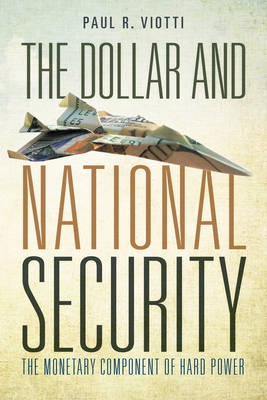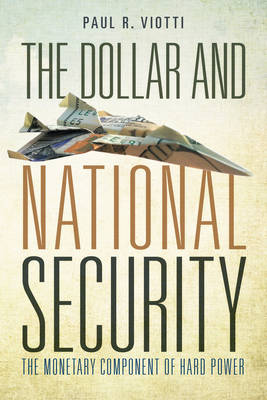
- Afhalen na 1 uur in een winkel met voorraad
- Gratis thuislevering in België vanaf € 30
- Ruim aanbod met 7 miljoen producten
- Afhalen na 1 uur in een winkel met voorraad
- Gratis thuislevering in België vanaf € 30
- Ruim aanbod met 7 miljoen producten
Zoeken
The Dollar and National Security
The Monetary Component of Hard Power
Paul Viotti
Paperback | Engels
€ 48,95
+ 97 punten
Uitvoering
Omschrijving
Defense establishments and the armed forces they organize, train, equip, and deploy depend upon the security of capital and capital flows, mechanisms that have become increasingly globalized. Military capabilities are thus closely tied not only to the size of the economic base from which they are drawn, but also to the viability of global convertibility and exchange arrangements. Although the general public has a stake in these economic matters, the interests and interpretive understandings held by policy elites matter most-in particular those among the owners or managers of capital who focus on international finance and the international monetary regimes that sustain global commerce and their capital positions. In The Dollar and National Security, Paul Viotti explores the links between global capital flows, these policy elites, and national security. After establishing the historical link between currency, gold, and security, he continues the monetary-security story by examining the instrumental role the dollar has played in American economic and national security over the past seven decades. He reveals how perceived individual and collective interests are the key drivers toward building the kind of durable consensus necessary to sustain the external financing of American foreign and national security policy, and addresses the future implications for national security as decision-makers in the BRICs and other countries position themselves to assume an even larger policy presence in global commercial, monetary, and security matters.
Specificaties
Betrokkenen
- Auteur(s):
- Uitgeverij:
Inhoud
- Aantal bladzijden:
- 243
- Taal:
- Engels
Eigenschappen
- Productcode (EAN):
- 9780804792257
- Verschijningsdatum:
- 23/07/2014
- Uitvoering:
- Paperback
- Formaat:
- Trade paperback (VS)
- Afmetingen:
- 152 mm x 226 mm
- Gewicht:
- 340 g

Alleen bij Standaard Boekhandel
+ 97 punten op je klantenkaart van Standaard Boekhandel
Beoordelingen
We publiceren alleen reviews die voldoen aan de voorwaarden voor reviews. Bekijk onze voorwaarden voor reviews.











